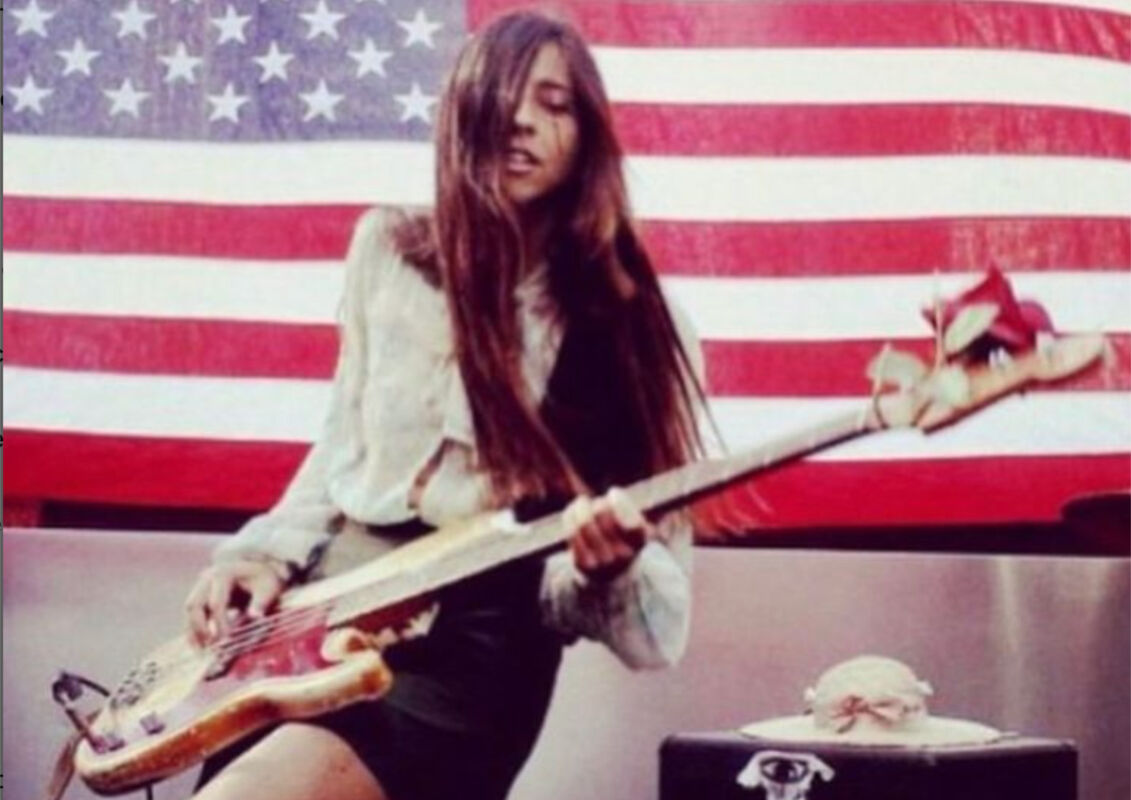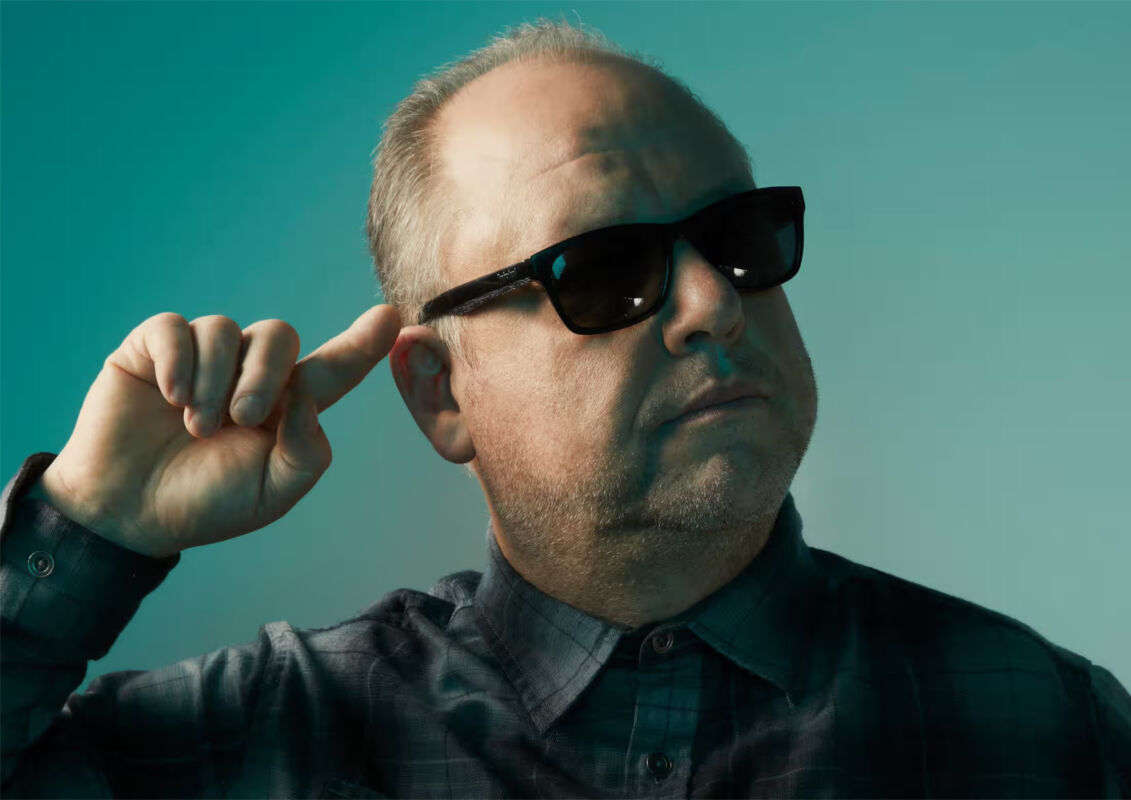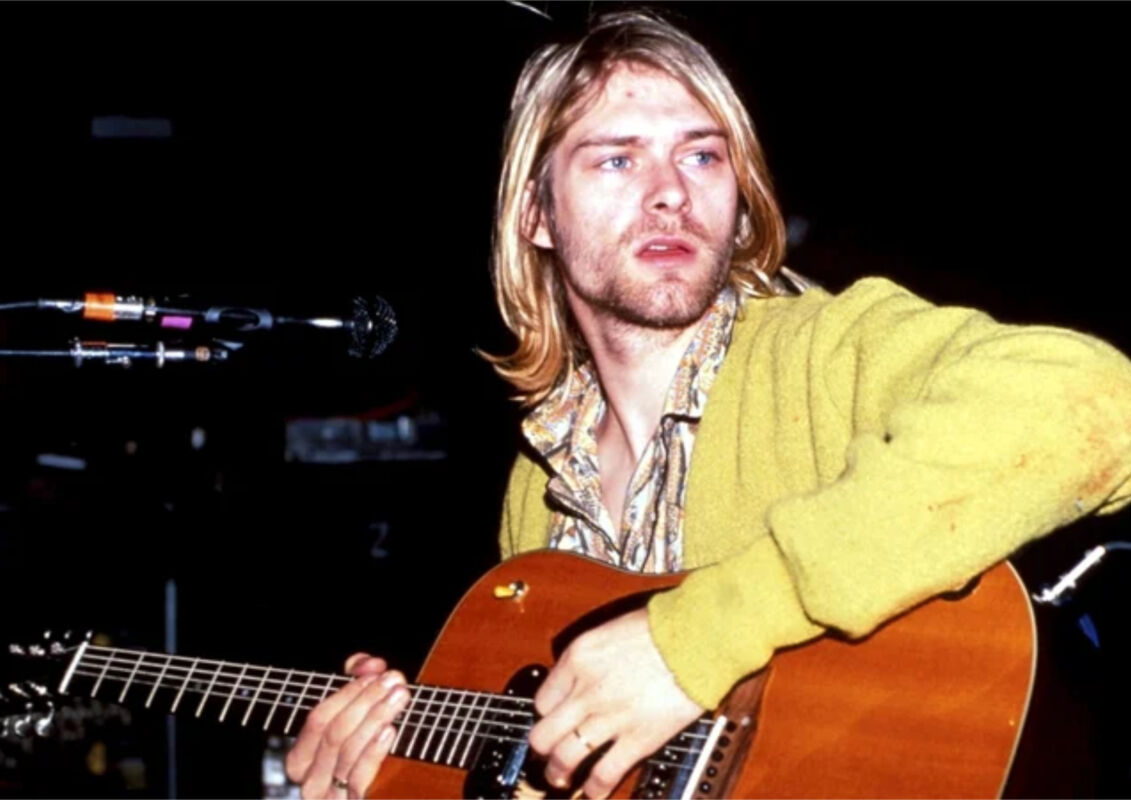

Flamboyant and charismatic, Robi, supported by his band, Navicula, is one of a few pioneers of all this green activism among Indonesian musicians. Long before eco-protest songs become trendy, this Balinese hot-blooded guy already sang his heart out about socio-environmental malfunctions. After more than a decade making (intelligent grunge) music, these days he is giving his voice further amplification by co-founding an organization which focuses on urban farming, named Akarumput. He is also a media consultant for various organizations and has just started his other music project, a duo called Ganjil.
How did you start getting involved in music?
Since I was 13 years old I’ve been a music enthusiast and a “serious” worshipper of the music industry. Then, when I first saw Nirvana’s “Smells Like Teen Spirit” on TV, that was the moment I decided I wanted to be in a band. I started seriously studying guitar and tried writing my own songs. I actually became a geek, crazy about alternative rock, I studied their spirit and lived their attitude. I tried combining metal, punk and visual art. My first band was formed by me and my girlfriend in my first year of high school. We broke up, so the band broke up. In my second year of high school (1996) me and Dankie started hanging out at practice studios around Denpasar, then we decided to form a band that we named Navicula. At that time while working on the band concept and writing our own songs, we used to play any gig we could find. This helped us get experience and improved our skills. In time, we wrote a lot of songs, and started recording some, on cassette. We worked with a few different drummers, but in ’98, there was this reggae drummer and gamelan player named Gembull who we had our eye on. I was on vocals and guitar, Dankie played bass, and we both were at the same school as Gembull—so, he ended up joining our band. The three of us released Navicula’s first album in ’98 titled Self Portrait. In 2002, while working on our 2nd album, Made joined our band on bass so Dankie started playing lead guitar. Since then our band formation has stayed the same, we are now working on our 7th full-length studio album.

Have Navicula always been a grunge band, right from the start?
Yes, maybe because those were the bands we listened to as teenagers, bands like Nirvana, Pearl Jam, Soundgarden, Alice in Chains. But we are into all genres of music: metal, hardcore, punk, progressive, blues, psychedelic, funk, pop, disco, traditional, world music, where it works we like to mix up the genres in our songs, but grunge tends to be the strongest spice. All of the Navicula members have different styles they are into, for example Made listens to a lot of hardcore and punk, Dankie likes blues, Gembull is a super talented gamelan player—he comes from a family of traditional Balinese musicians who have been passing on gamelan skills from generation to generation. I myself am more focused on combining activism and music, it’s more about the message, mixed with punk attitude and a DIY perspective.
Speaking of the grunge scene in Indonesia, it reminds me of the punk movement in the early 90s, strong and fanatic. I saw the same stuff in your concerts on TV, pretty crazy. Any stories to share?
Actually, for a long time there have been pockets of grunge communities spread across the Indonesian archipelago. It’s a small scene, but they are active and militant. Recently, through the internet, the underground grunge scenes have started to surface. When we toured Java in 2009 to promote our album release Salto, we passed through Bandung, Jakarta, Jogja, Semarang, Solo, Malang and Surabaya—the theme of the tour was Grunge is Not Dead: Navicula is Back!. This tour received support from the local grunge scenes in each city, and even inspired the formation of new grunge communities and bands. Almost every gig we did on that tour was put together by these underground communities, who worked together to put on a great show, with or without sponsorship. This was really good for a band like Navicula, a band that has a following because of the scene. Big scenes make big bands.

Do you think grunge will have its second heyday here in Indonesia?
When you look and the industry and trends, music has so many similarities with fashion. They both have their retro moments. Grunge is coming back right now, people are interested in the style of music that was booming in the 90s, with some modifications to adapt to people’s tastes today. Talking about fashion, just look around at how trending flannel is right now. Almost every famous brand has had flannel in their display merchandise window since last year. Social networks and the internet have made gigs easier to organize, and grunge lovers from all over are sharing information and getting involved. The new hype right now in Indonesia is a plan to put on a collaborative national grunge festival called Rockotor Fest.



Navicula have always been concerned about environmental issues since day one, do you think your eco-protest songs have been effective?
Our musical concept has always been strongly influenced by grunge. But since it’s my job to create the song concepts and lyrics, and this is the topic I’m interested in. It has to do a lot with my activities outside of music which are related to social and environmental issues, I work with NGOs and community based movements, so I am often very close to these issues, and they become themes in Navicula’s music. I believe the public has the right and the responsibility to be informed, to understand, and contribute to the current environmental and social issues we are facing. And music is a cool media to get the message across. I use Navicula as way to spread the word, the music is the media. This concept has led to Navicula collaborating with a number of social/environmental organisations such as LIPI (Lembaga Ilmu Pengetahuan Indonesia), IDEP, AIFDR and Greenpeace to socialise their campaigns about disaster awareness, organic farming and deforestation. Recently we worked together with Sawit Watch, Walhi, COP and Green the Movie to promote orang utan awareness through a song and video campaign which was released on Akarumput.com. Is any of it effective? We get a lot of response from our fan base about these issues. We know this may not bring a significant change, in fact most social efforts don’t, but you have to start somewhere. The world is this fucked up, we all need to be involved in making it a better place. We are musicians, so we use music to do this.
How do you find the music industry in Bali and Indonesia right now? Do you still have hope?
Right now the music industry in Indonesia, since the transition from physical albums to digital, is still looking for a new shape. But I’m sure whatever format music comes in, we will still be playing music. Everyone in Navicula is playing music because we love it, becoming rich and famous one day would just be side-effects of playing music. With or without money we love to listen to and make music. Music is like a religion to us, because most of our time and money is spent there.
Navicula are working on new album right now?
Yes, we are in the studio finishing our 7th full-length album. We’ve recorded 12 new songs, but maybe only 10 will make it onto the album. The concept of the overall sound is something new, but of course we are making sure that Navicula’s character and feeling is still there. The lyrics are still focused on ecology, but the new songs are more direct and to the point, with a stronger, clearer focus than before.
You’re such a busy man these days. Other than Navicula, what are your other activities?
It feels like all the rocks I’ve been pulling along have finally started rolling fast downhill, actually they are rolling too fast. But I try to just feel grateful and enjoy the process. Do what you love and love what you do. Besides Navicula, I still work freelance as a media consultant for some organizations. I am also getting passionate about painting and teaching music. My side project, Ganjil, has just started recording, which is a lot of fun. I am also the company director and staff writer for Akarumput.com, a new online media with a strong focus on—surprise!—social and environmental issues. Akarumput.com takes a participative journalistic approach, which means our team actually does what we write about. One example of this is how we use the website to introduce the importance of farming and organic food, while at the same time we are active in the community through our group Bali Urban Farming.
Once the rocks are rolling, if there is still passion, you just do everything you can to keep the rocks rolling… It’s rock ‘n’ roll!! Haha…



Ok, let’s get more personal, name three of your all-time favourite records and why?
Soundgarden, Superunknown. This album is so beautiful musically. To me it is their masterpiece. Everything just works, the sound, arrangement, songs. Perfect.
The Melvins, Nude With Boots. I feel like the Melvins represent everything that is my taste and personal sense of humor. I draw a lot of inspiration from them: ideas, freedom, dimension, texture, soul, this doesn’t just apply to my music, but also to my paintings and writing. Nirvana, Nevermind. This album is the reason I’m in a band.
Three of your all-time favourite films and why
Fight Club: It makes me rethink everything and adds perspective to what I know of culture and the systems we are all a part of, and it makes me reconsider what I actually want from life.
Watchmen: I love all the elements of this film. I can watch it over and over again.
The Rocky Horror Picture Show: This film makes me laugh, even every time I see lips with red lipstick hehe…
Any last nagging words?
Remember to take the time, get off Facebook and Twitter every once in a while, and just plant something in the ground—it’s where true inspiration can be found.
💧Read also NAVICULA – ALKEMIS.
⎯⎯⎯⎯⎯
This interview was originally published on The Beat (Bali) #311, May 11-24, 2012.





